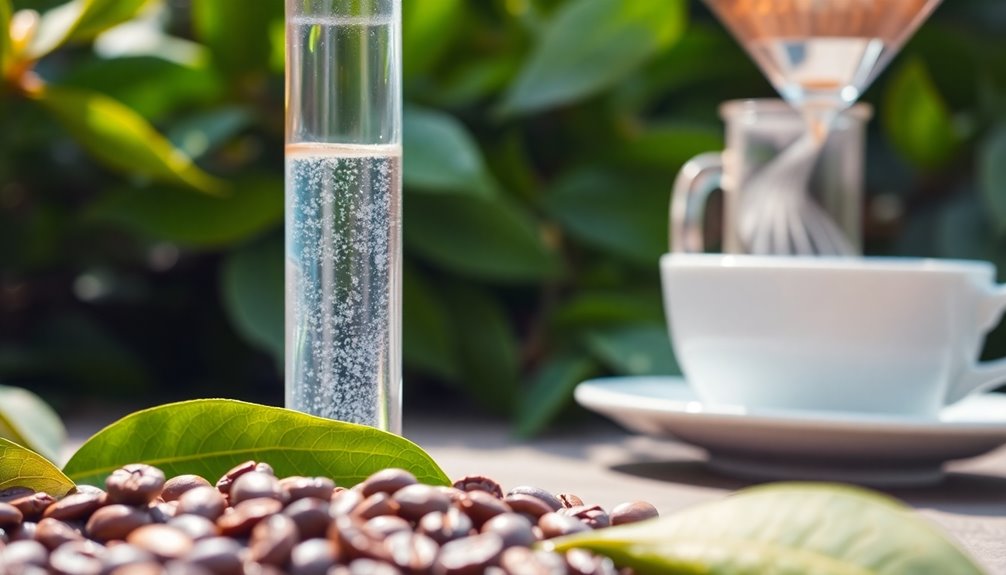Water is the most overlooked ingredient in coffee brewing, yet it makes up 98% of every cup. Using the right water can elevate the flavors of your coffee, while poor-quality water can ruin even the best beans. This article explains how water quality affects coffee flavor and how to optimize it for the best brew.
Why Water Quality Matters in Coffee Brewing
- Coffee is mostly water, so any impurities, chemicals, or imbalances can alter the final flavor.
- Ideal brewing water enhances the natural flavors of coffee without introducing unwanted tastes.
Key Water Components That Affect Coffee Flavor
1. Mineral Content (Hardness)
Calcium and magnesium contribute to water “hardness” and play a significant role in extraction.
- Too soft (low minerals): under-extracted, flat coffee
- Too hard (high minerals): over-extracted, harsh coffee
Ideal hardness: 50-175 ppm (parts per million)
2. Alkalinity and pH
Alkalinity helps buffer the water against pH changes.
- Low alkalinity: can result in sour, unstable flavors
- High alkalinity: leads to dull, muted coffee
Ideal pH: ~7 (neutral)
Tip: Aim for balanced water that enhances coffee’s acidity without overpowering it.
3. Chlorine and Other Chemicals
- Chlorine is commonly found in tap water and can give coffee a chemical or metallic taste.
- Other contaminants like iron, sulfur, and fluoride can also affect flavor.
Solution: Use filtered or spring water. Avoid distilled water — it lacks essential minerals.
What’s the Best Water for Brewing Coffee?
The Specialty Coffee Association (SCA) recommends water with the following parameters:
| Component | Ideal Range |
|---|---|
| Hardness | 50-175 ppm |
| Alkalinity | 40 ppm |
| pH | ~7.0 |
| Total Dissolved Solids (TDS) | 150 ppm |
How to Improve Your Water Quality
1. Use a Filter
- Carbon filters: remove chlorine, odors, and some contaminants.
- Reverse osmosis: removes most impurities but may need mineral rebalancing.
2. Use Bottled Spring Water
Some bottled spring waters meet ideal parameters for coffee brewing. Always check the label for mineral content.
3. DIY Water Optimization
Products like Third Wave Water add precise mineral blends to distilled water for perfect brewing water.
Signs That Your Water Is Affecting Your Coffee
- Flat or lifeless flavor: likely from too soft or distilled water.
- Chemical or metallic taste: presence of chlorine or other contaminants.
- Excessive bitterness: overly hard water.
Tip: If your coffee tastes off despite using quality beans and good technique, check your water!
Final Thoughts
Water is often the forgotten element in coffee brewing, yet it can dramatically affect the taste and aroma of your cup. By using the right water — filtered, properly mineralized, and free from contaminants — you can unlock the full potential of your coffee.
